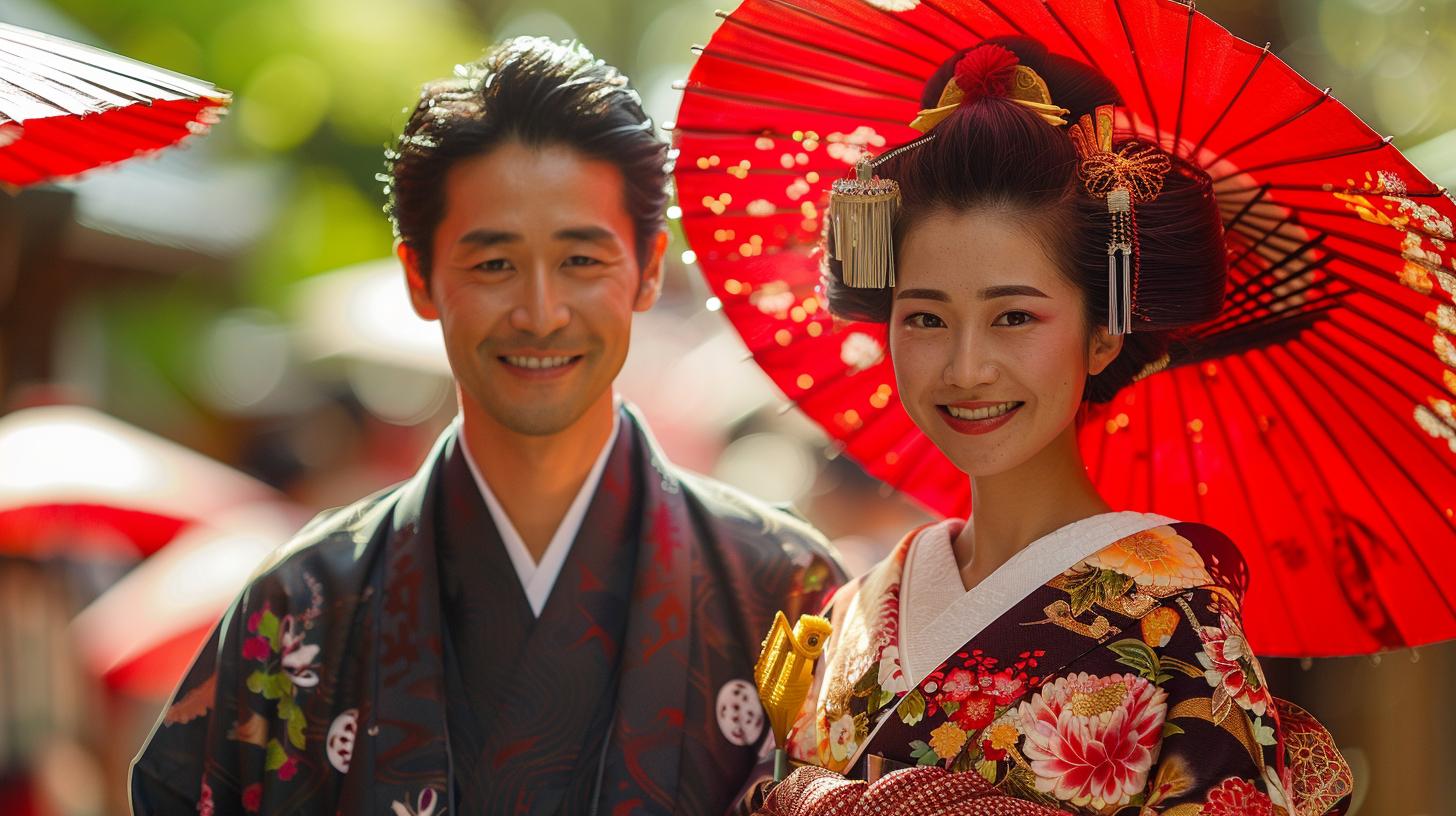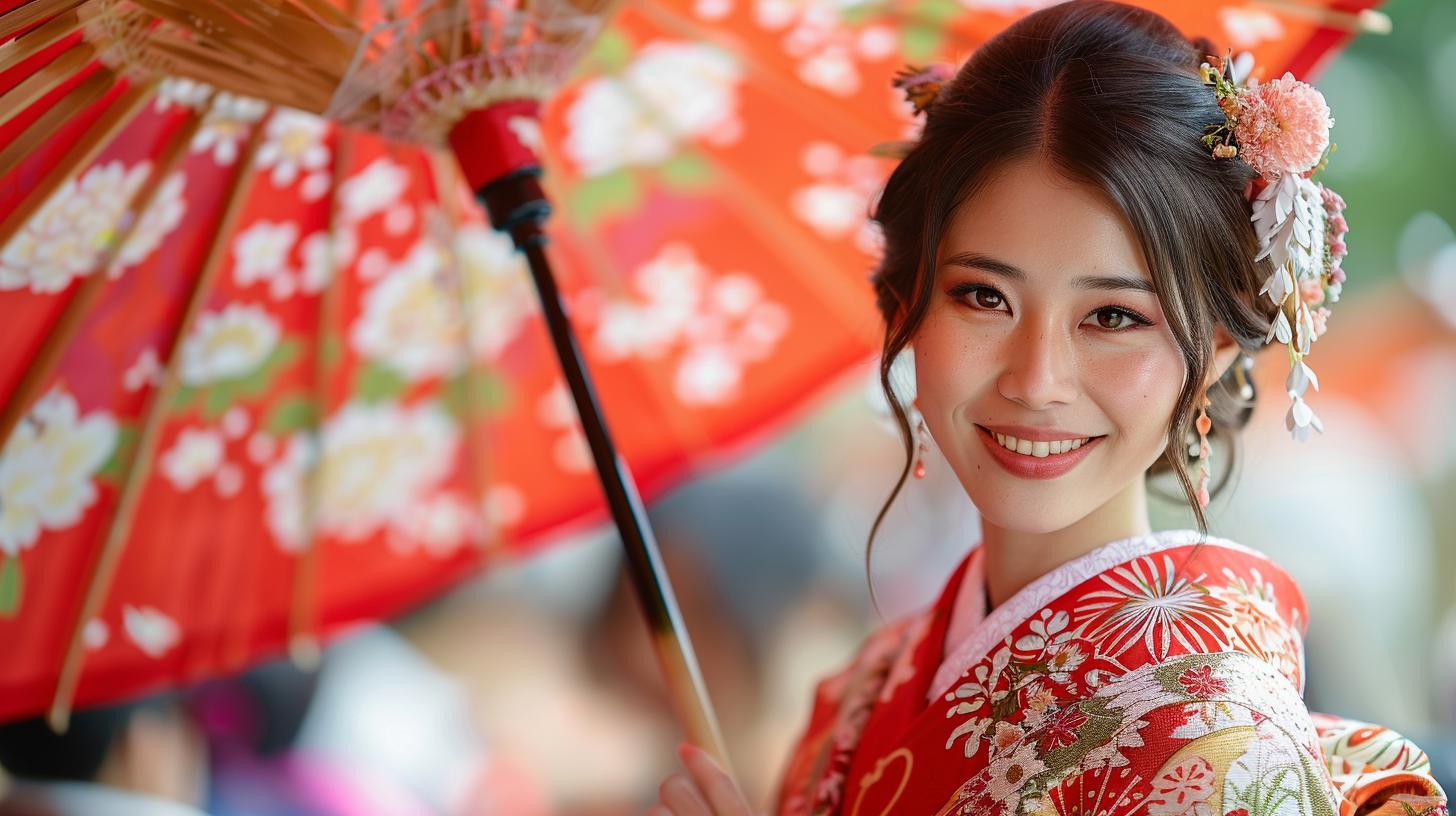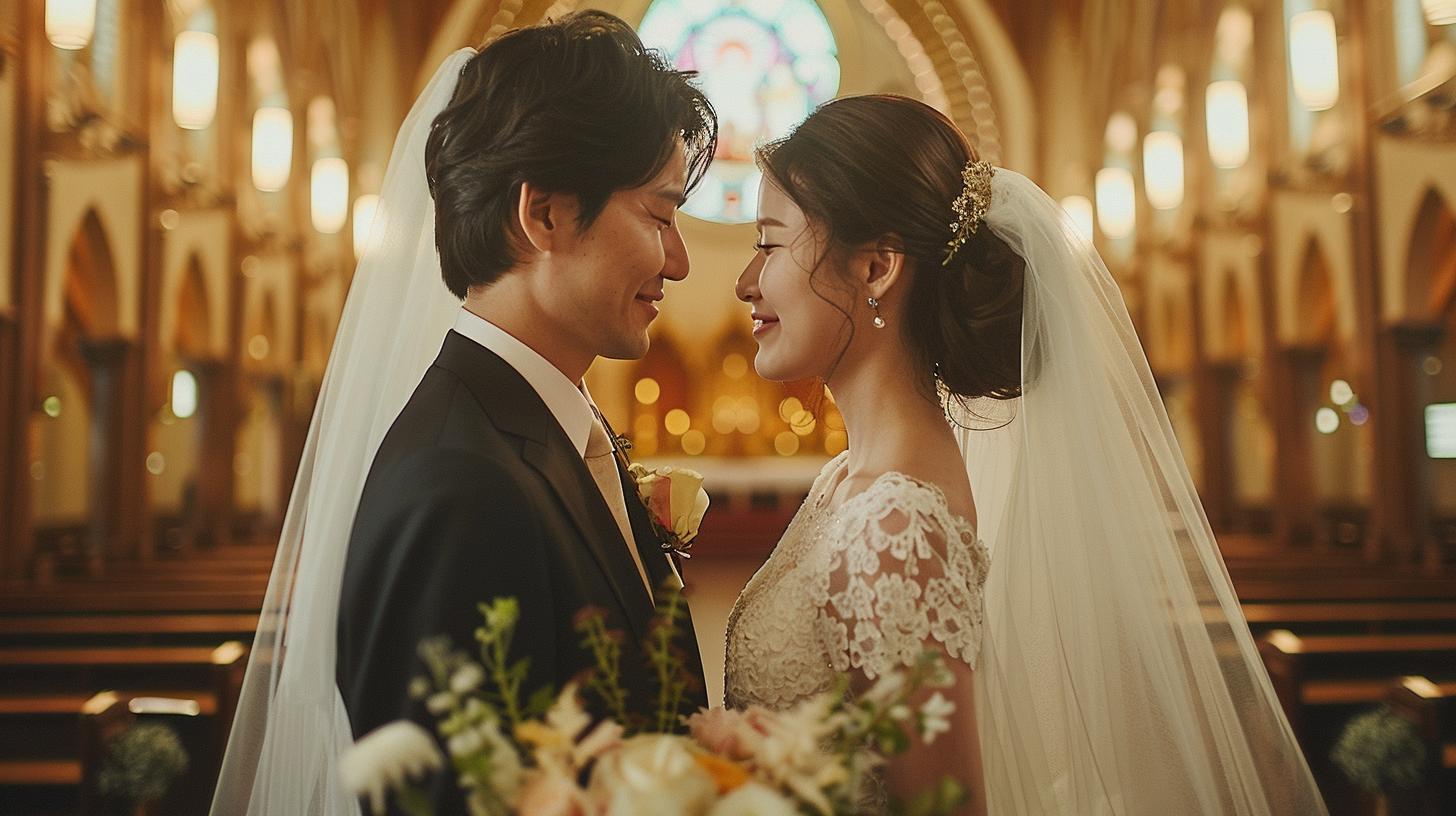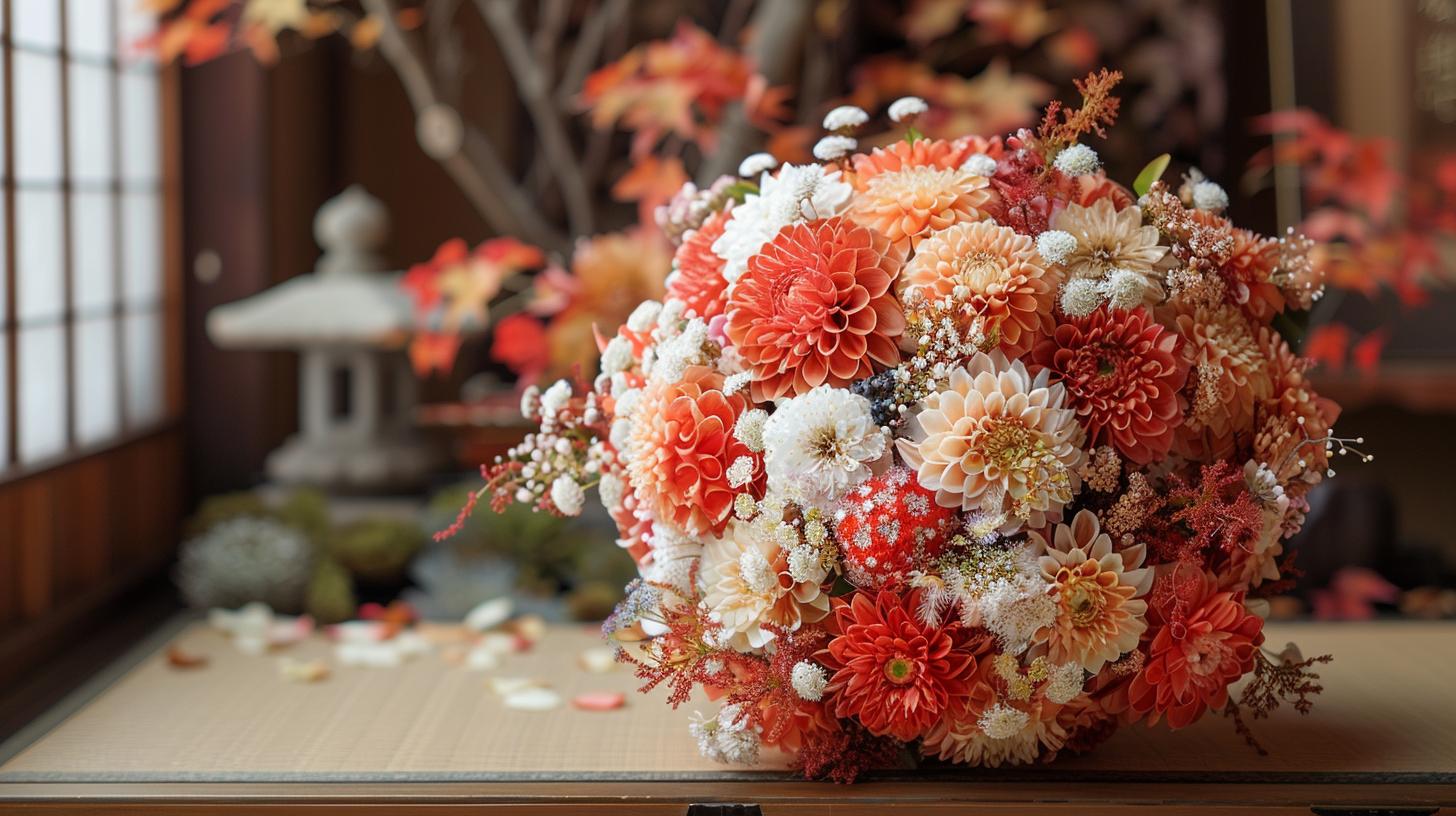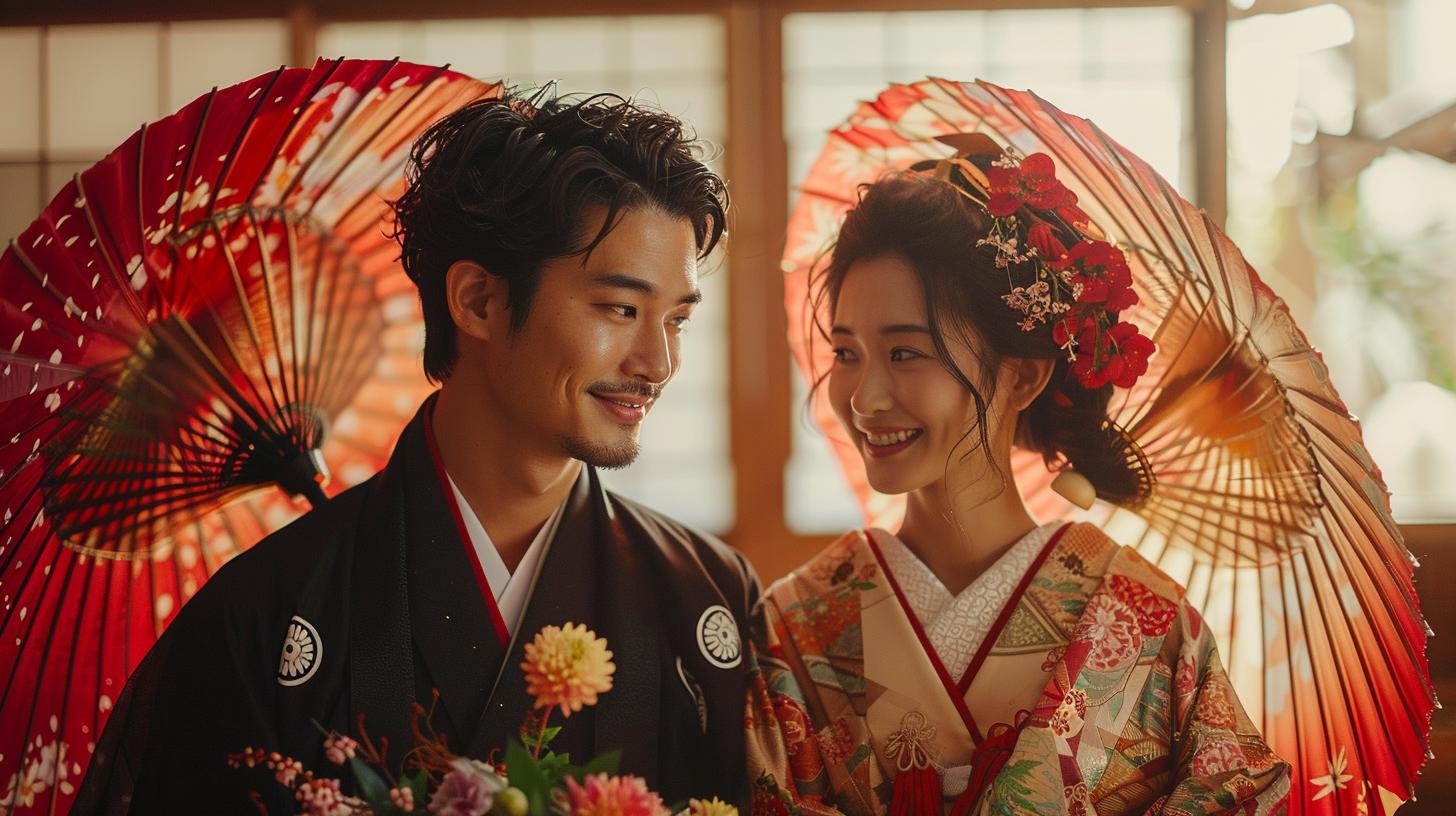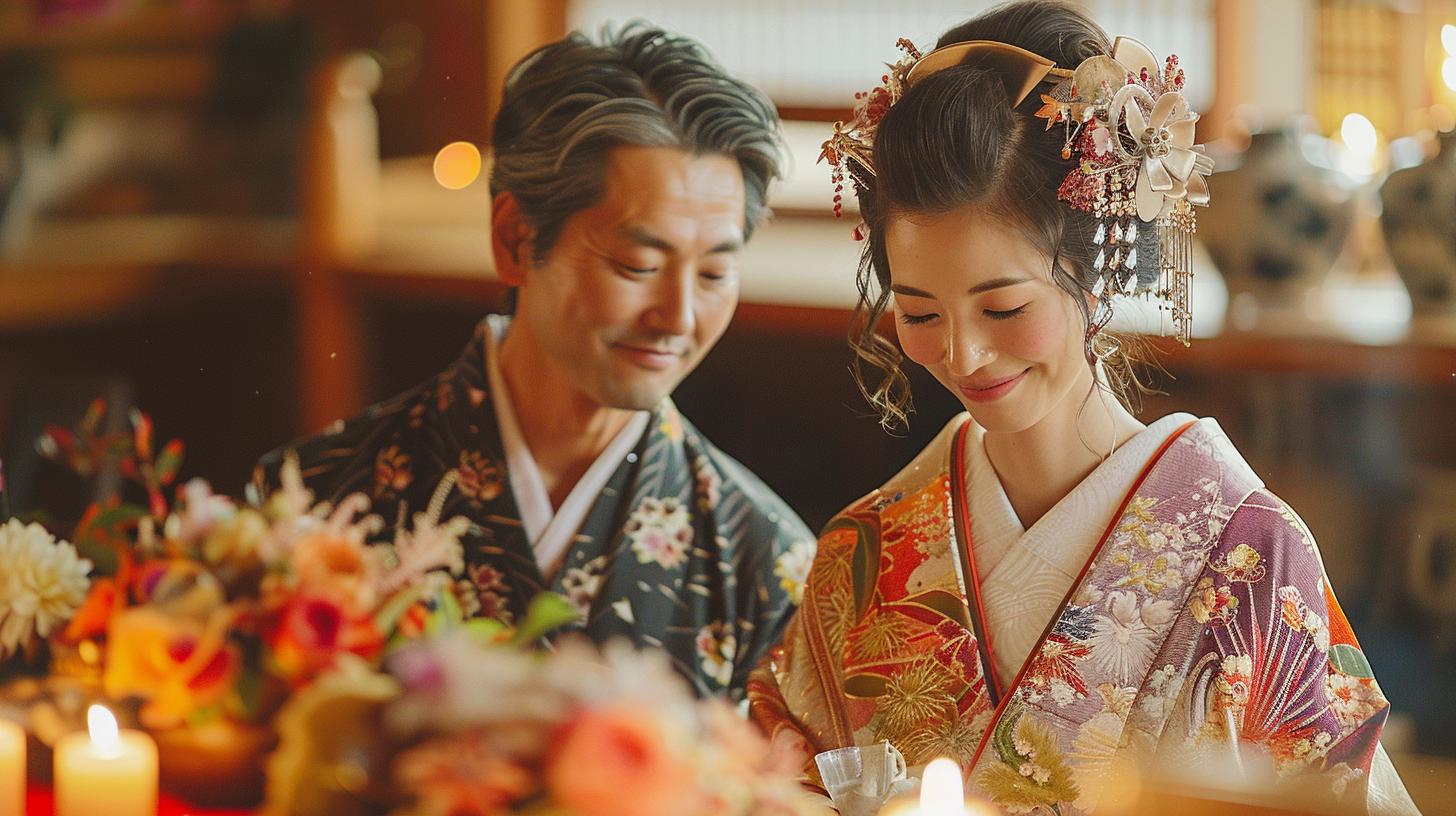Modern Japanese Wedding Traditions Explained
Modern Japanese weddings blend traditional Shinto rituals with Western influences. Couples often choose between Shinto ceremonies at shrines or Western-style weddings at hotels. The ceremonies involve rituals like purification, sake sharing, and ring exchange.
Guests give money in special envelopes as gifts. Dress code and etiquette are important, with different customs for Western-style weddings in Japan.
Overview of Modern Japanese Weddings
Modern Japanese weddings blend traditional Shinto customs with contemporary influences. Couples have the choice between Shinto ceremonies performed at shrines or Western-style weddings held at specialized venues. These ceremonies include rituals such as purification with water, the sharing of sake, and the exchange of rings symbolizing eternal love and commitment.
- Guests typically give monetary gifts enclosed in special envelopes called shugibukuro.
- Etiquette and dress codes play a crucial role in these celebrations, with expectations varying between the different styles of wedding ceremonies.
Japanese Wedding Attire
When it comes to Japanese wedding attire, couples have the option of choosing between traditional kimonos and Western-style attire.
Each choice carries its own significance and style, reflecting the couple’s preferences and cultural background.
Kimonos Vs. Western Attire
Japanese weddings often feature brides wearing stunning kimonos, intricately designed garments rich in symbolism. These kimonos can vary in color and pattern, with each element holding a specific meaning. On the other hand, Western-style attire, such as white wedding dresses for brides and suits for grooms, provides a more modern and global touch to the ceremony.
Changing Outfits during the Ceremony
It is not uncommon for Japanese couples to change outfits multiple times throughout the wedding day. They may start with traditional attire for the ceremony, transition to Western-style attire for the reception, and even have different outfits for specific rituals or events during the celebration.
These outfit changes add an element of variety and personalization to the wedding festivities.
Traditional Japanese Wedding Customs
Shinto Ceremonies
In traditional Japanese weddings, Shinto ceremonies hold great significance. These ancient rituals are deeply rooted in Japanese culture and spirituality.
Performing Rituals at Shinto Shrines
The wedding ceremony usually takes place at a Shinto shrine, a sacred space dedicated to the spirits and deities of the Shinto religion. Here, the couple performs various rituals to symbolize their union and seek blessings for their marriage.
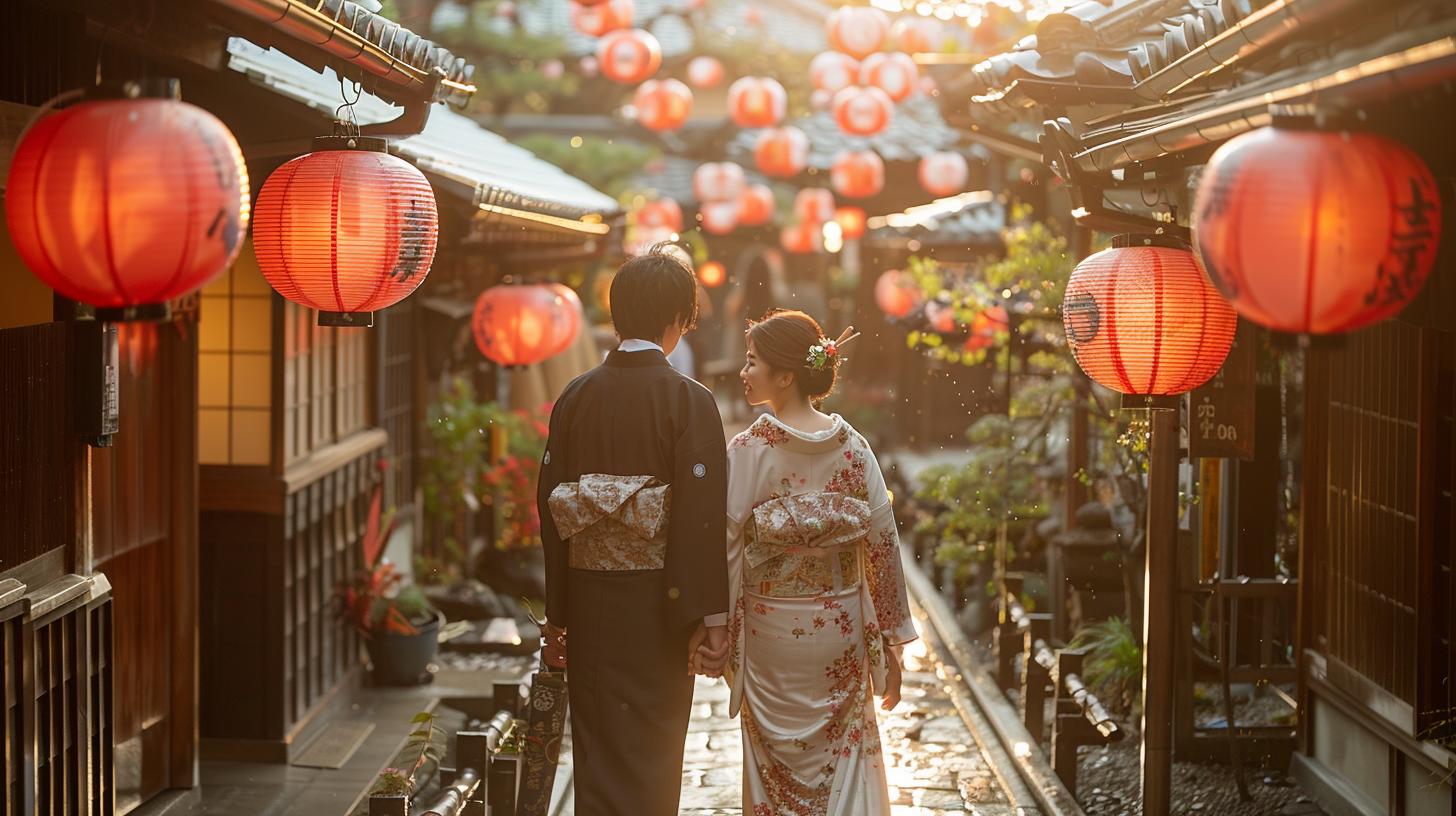
The Role of Shinto Priests
Shinto priests play a crucial role in traditional Japanese weddings. They lead the ceremony, offer prayers, and bless the union of the couple according to Shinto customs and traditions.
Modern Ceremony Venues
While many couples opt for traditional Shinto ceremonies, modern wedding venues have also gained popularity in Japan.
These venues provide a blend of traditional and contemporary elements in the wedding ceremony.
Gift Giving Traditions at Japanese Weddings
Gift giving is an essential part of Japanese wedding customs, with unique traditions that reflect the culture and values of the Japanese people. From monetary gifts to thoughtful exchanges between the couple and their guests, these practices hold special significance in celebrating the union of two individuals.
Gifting Money in Shugibukuro
One common tradition at Japanese weddings is the practice of giving money as a gift, presented in a special envelope called a shugibukuro. The amount of money given depends on the relationship with the couple and is often considered a gesture of good luck and prosperity for their future.
Gift Exchanges between Couple and Guests
In addition to receiving monetary gifts, the couple also exchanges gifts with their guests as a token of appreciation for their presence on this special day. These gifts can range from traditional sweets to more significant items that symbolize friendship and gratitude.
Etiquette and Cultural Norms at Modern Japanese Weddings
Dress Code and Behavior Expectations
At modern Japanese weddings, guests are expected to adhere to a specific dress code and follow cultural norms. Proper attire, such as formal dresses or suits, is customary. It is important to dress respectfully and conservatively to show honor to the couple and the occasion.
Differences in Western-Style Weddings in Japan
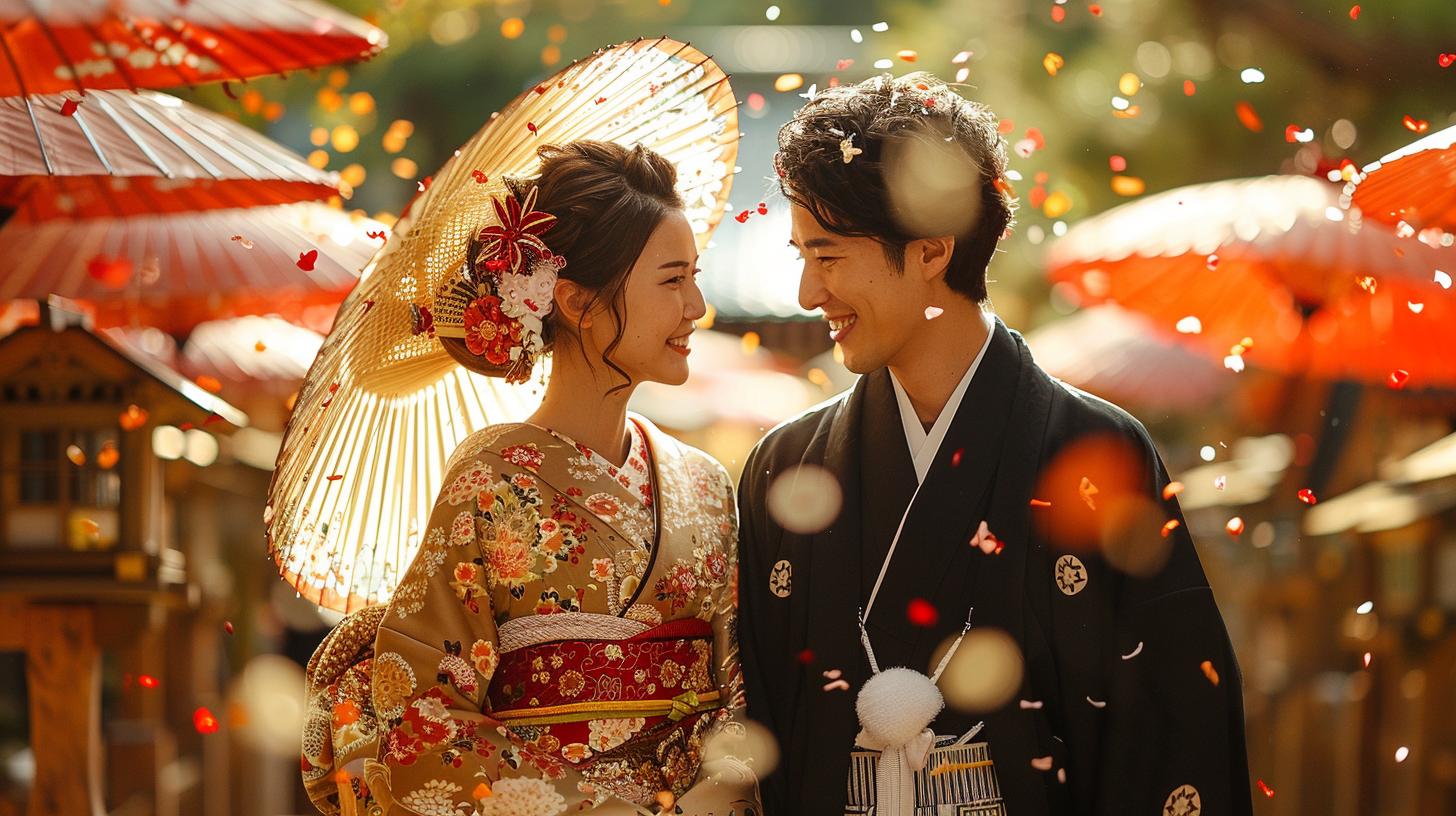
While Western-style weddings are popular in Japan, there are differences in etiquette compared to traditional Japanese ceremonies. Guests should be mindful of these variations, including the expectation to give monetary gifts and adhere to specific dress codes.
Understanding and respecting these differences can enhance the overall experience of attending a Japanese wedding.
Unique Elements of Modern Japanese Wedding Celebrations
One unique aspect of modern Japanese weddings is the incorporation of both traditional and Western influences, creating a blend of rituals and customs that reflect the couple’s preferences and beliefs.
- Couples often opt for a combination of Shinto and Western-style ceremonies, allowing for a diverse and personalized celebration.
- It is common for couples to include elements such as the exchange of vows, rings, and sake sharing, along with traditional rituals like purification and offerings to the gods.
Another distinctive feature is the emphasis on attention to detail and aesthetics, with many weddings incorporating intricate decorations, floral arrangements, and thematic motifs to create a visually stunning and harmonious atmosphere.
- Venues are carefully chosen to reflect the couple’s vision, whether it be a traditional Shinto shrine, a luxurious hotel, or a scenic outdoor location.
- Guests are often treated to a refined dining experience, featuring a blend of traditional Japanese cuisine and modern culinary creations, paired with sake or other beverages.
.

